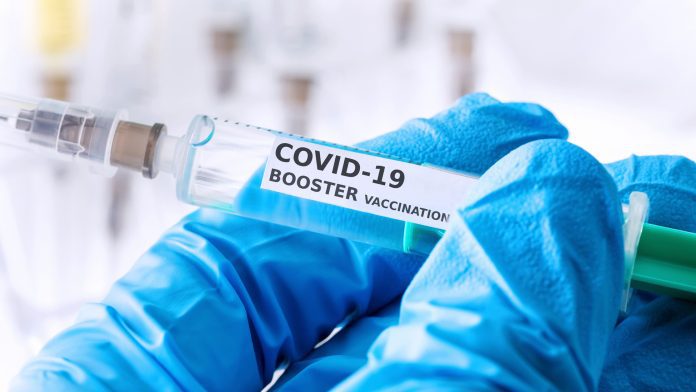
In the most extensive real-world study to date, an international research team has identified that the Pfizer/BioNTech booster vaccine is highly effective at reducing the risk of hospitalisations from COVID-19.
Experts from the Clalit Research Institute and Harvard University have collaborated to investigate the efficacy of the Pfizer/BioNTech BNT162B2 booster vaccine against the Delta variant of SARS-CoV-2, discovering that it lowers hospitalisations from the disease. The study, based in Israel, utilised one of the world’s largest integrated health record databases, illuminating the effectiveness of a third “booster” dose of the BNT162B2 vaccine in a nationwide mass-vaccination setting.
The investigation was partly funded by the recently announced Ivan and Francesca Berkowitz Family Living Laboratory.
Resurgence of COVID-19
Across the globe, SARS-CoV-2 infections are once again starting to become more prevalent, even despite robust vaccination programmes. Specialists believe this may be due to the COVID-19 Delta variant – which is now the most dominant strain worldwide – being more infectious than other variants, and the effectiveness of previous vaccines may be starting to wane.
To combat this, several countries are planning the rollout of a third booster dose of the vaccine to mitigate the impacts of coronavirus throughout the challenging winter months, but will this strategy be effective? To investigate if this protocol will help to reduce the effects of SARS-CoV-2 infection, the researchers analysed the efficacy of the booster vaccine across different time periods, subpopulations, and severe outcomes in the largest study of its kind.
Booster vaccine performance
The team carried out their study between July 30, 2021, and September 23, a time in which Israel experienced its fourth wave of coronavirus infection, predominantly from the Delta variant. The researchers examined data from 728,321 individuals aged 12 and over who had all received the BNT162b2 booster vaccine, who were carefully matched 1:1 with 728,321 individuals who had only received two doses of the vaccine at least five months prior.
The matching was based on a large set of demographic, geographic, and health-related attributes that are associated with a risk of infection, severe disease, health status, and health-seeking behaviour. Furthermore, all of the participants were assigned to each group based on their changing vaccination status, with 198,476 moving from the unvaccinated cohort into the vaccinated cohort throughout the study. Additional analyses were performed to guarantee that estimated vaccine effectiveness was robust to potential biases.
The results revealed that the individuals who received the BNT162b2 booster vaccine had a 93% lower risk of COVID-19-related hospitalisation, 92% lower risk of severe disease, and 81% lower risk of COVID-19-related death, with the effectiveness demonstrated to be similar across all sexes, age groups, and comorbidities. The study also included a population-level analysis, identifying that infection rates began to drop within 7-10 days of receiving the booster vaccine.
“The extensive nationwide rollout of Israel’s third-dose ‘booster’ COVID-19 vaccination campaign provided the Clalit Research Institute with a unique opportunity to assess, through its rich and comprehensive digital datasets, the effectiveness of the third dose in a real-world setting against the less common but severe complications of COVID-19,” said Professor Ran Balicer, senior author of the study, Director of the Clalit Research Institute and Chief Innovation Officer for Clalit.
“These results show convincingly that the third dose of the vaccine is highly effective against severe COVID-19-related outcomes in different age groups and population subgroups, one week after the third dose. These data should facilitate informed policy decision-making.”
Professor Ben Reis, Director of the Predictive Medicine Group at the Boston Children’s Hospital Computational Health Informatics Program and Harvard Medical School, said: “To date, one of the main drivers of vaccine hesitancy has been a lack of information regarding the effectiveness of the vaccine. This careful epidemiological study provides reliable information on third-dose vaccine effectiveness, which we hope will be helpful to those who have not yet decided about vaccination with a third dose.”
Professor Miguel Hernán, Director of the CAUSALab and Professor at the Harvard T.H. Chan School of Public Health, commented: “This research is a perfect example of how randomised trials and observational healthcare databases complement each other. The trial of the Pfizer/BioNTech vaccine provided compelling evidence of its effectiveness to prevent symptomatic infection, but the estimates for severe disease and specific age groups were too imprecise. This analysis of Clalit’s high-quality database emulates the design of the original trial, uses its findings as a benchmark, and expands upon them to confirm the vaccine’s effectiveness in adolescents. This combination of evidence from randomised trials and observational studies is a model for efficient medical research, something which is especially important in COVID times.”
Professor Marc Lipsitch, Director of the Center for Communicable Disease Dynamics from the Harvard T.H. Chan School of Public Health, said: “In all studies of vaccine effectiveness, a major challenge is to ensure that those we are comparing to identify the vaccine’s effect are similar in the other characteristics that may predict whether they get infected or ill. This is especially hard in the context of a rapidly growing, age-targeted vaccine campaign. Clalit’s extraordinary database made it possible to design a study that addressed these challenges in a way that provides tremendous confidence in the inferences that come out of the study.”








